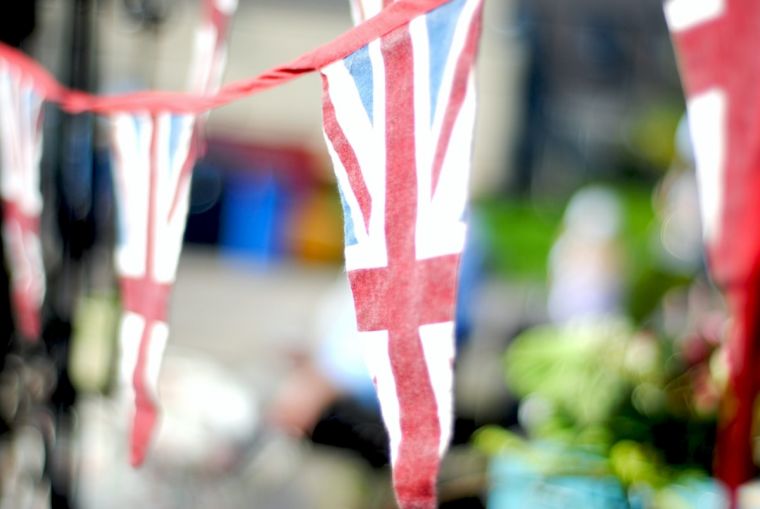How England (and the whole UK) can avoid scoring a massive own goal

After those missed penalties last week and all the soul searching that followed since then, we need to tell ourselves some better stories about who we are as a nation, argues Thomas Garvey.
As the chosen five lined up to take England's deciding penalties against Italy, I could hear two inner pundits offering me a rundown of our chances.
Pundit number one: "Wow, this is agonising, but we're a good side, we could still win this."
Pundit number two: "Here we go again, we always get so far in a tournament, and then we lose on penalties – that's what we do!"
I suspect I was far from alone in juggling those two conflicting voices.
Now the pundits are out in force again, but the question this time following the loss is: "what kind of nation are we?"
A newspaper reviewer on the BBC mused upon the infamous photograph of an excitable England fan on a match day "rampage": "This guy with a flare up his bum is, in a way, who we are."
He was not alone in trying to sum up our national essence this week (apologies to the remainder of the UK reading, but please do read on, this is not just about England and flares in the fundament...).
As the eventual defeat gave way to a slew of horrendous, sickening racist posts online, there were hundreds of would-be commentators ready to take to the media – mainstream and social – to declare 'this is who we are now.'
Writing for The Independent, Rupert Hawksley declared: "Thuggishness, entitlement and a total lack of care for others seem to be national traits now... This is England – and you live here. Let's at least be honest about it."
Meanwhile, the Have I Got News for You Twitter feed posted (and then, quite rightly, deleted - hence the paraphrase) a joke headline, declaring that Premier League sides were not keen banning all racists from future games because they could not make ends meet 'with only 10-12 supporters per match'.
To be clear: my unease at remarks like these is not a denial of the serious issues surrounding race and racism that we clearly need to confront as a nation. My concern is that the stories we choose to tell ourselves, about ourselves have more power than we think - for good or ill.
To illustrate, let me perform a deft body-swerve away from football and tell you about a remarkable campaign that ran in Texas, in the US, a few years ago.
Texas had a serious litter problem, and numerous anti-litter initiatives had tried and failed to make a dent in it. Finally, they hit upon the "Don't mess with Texas" campaign. A series of advertisements utilised a who's who of beloved Texan sports celebrities to deliver the "Don't Mess..." strapline. One of them, a pitcher named Mike Scott told his fellow Texans that dropping litter was not "the Texas thing to do."
Put to one side that dropping litter was, at the time, something rather a lot of Texans were doing, the campaign was a stroke of genius. It struck a chord deep in the state's psyche: 'We are proud Texans, we don't do this sort of thing!' After a year, levels of litter had according to one source fallen by a whopping 29 per cent.
Appealing to our collective identity to draw out the better angels of our natures is by no means a new technique, though.
As you work your way through the opening chapters of 1 Corinthians, it becomes clear that the believers there are wrestling with some pretty serious issues: idolatry, incest and suing the backsides off each other, to name but three.
In chapter six, the Apostle Paul gives a long list of ne'er-do-wells who would not inherit the Kingdom of God, before telling them: "And such were some of you. But you were washed, you were sanctified, you were justified in the name of the Lord Jesus Christ and by the Spirit of our God" (1 Cor 6:11).
It is not just an individual fresh start Paul is talking about here. The Corinthian church was collectively part of Christ's body on planet earth, he tells them. Much like Texans and litter-dropping, members of Christ's body do not do 'that sort of thing' (see how he uses this sense of collective identity to urge them not to sleep with temple prostitutes only a few verses later).
Returning to England and the present day, I was heartened by another vision of who we are, or at least, who we want to be, as a nation. It was a response to the graffitied mural of player Marcus Rashford, in his childhood home of Withington, after the player's missed penalty.
In response, hundreds of members of the public added personal messages of support to the defaced mural, from large flags, to tiny post-its.
It was a message of solidarity with Rashford, a gifted player and an inspiring humanitarian. But it was also, I believe, a message to the entire nation: 'We are England; this act of disrespectful vandalism is not who we are.'
How we choose to define ourselves, as a nation and as Christians, has power to shape who we eventually become together. We need to define ourselves with care, lest we score a gigantic own goal.











